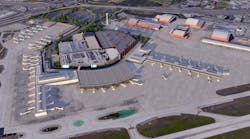Technical proficiency within an organization has to do with the knowledge, skills, and abilities (KSA) of those who work within that organization. Do they have the requisite KSA to execute, technically, on delivering the product or service that the organization promises to provide to its customers? If so, then the Technical Culture within the organization is likely strong, provided that two other elements exist: training and effective standard operating procedures (SOPs). Training is critical so that everyone, from line services to customer service representatives, can grow their expertise and keep up with current developments in the field. Effective standard operating procedures are developed by expert people and ensure efficiency and consistency.
Within the aviation industry, there is a natural tendency for employees and managers to rely on their real and perceived technical capabilities for organizational, departmental, or group survival. This “reliance” on technical expertise is related to the history of aviation, which is very much associated with technological advancement and the highly skilled individuals who work with that technology. Pilots fly impressive airplanes with complicated instrumentation to measure speed and distance and technicians fix the massive engines that enable flight. The technical expertise that created the aviation industry continues to influence every organization associated with it, whether that be an FBO, an airport, or a charter management company. The perception that technical expertise built the industry and will carry it into the future is the dominate theme even today. If we look, for example, where most organizations in the industry spend their training dollars, it is in the area of technical training.
Indeed, a strong Technical Culture is a prerequisite for success in the aviation industry. Even for those who support the industry but do not fly planes or fix them—flight planners, line services, customer service representatives—there is an expectation that they carry a greater understanding and appreciation for the technical complexities which make flight possible. Despite all of this, while Technical Culture is a necessary component to success, alone it is not sufficient—even within aviation. A disproportionate emphasis on the Technical Culture means that a department or organization is too inwardly focused. Next week, we will begin to examine how successful organizations also account for the customer.



